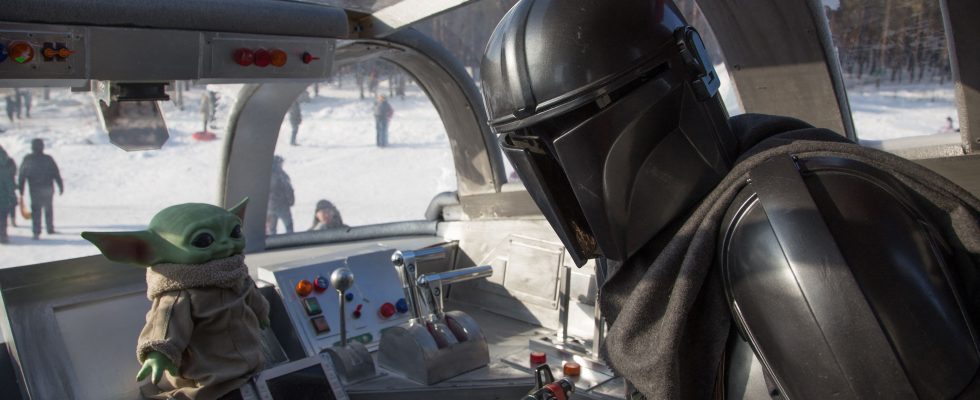Gone are the days when a TV series monopolized the attention of critics and viewers. Since the end of acclaimed programs such breaking Bad (Netflix) or Game Of Thrones (HBO), and the uncertain production of little gems like the science fiction series Severance (Apple TV), the next collective obsession has yet to be determined. Lost in the jungle of streaming platforms, the viewer can turn to the back-to-school blockbusters: season 2 of Loki on Disney +, the arrival of Monarcha series derived from the Godzilla universe on Apple TV, or even Star Trek: Strange New Worlds on Paramount +, yet another iteration of a series that has been broadcast for almost sixty years.
The golden age of “Peak TV” – inflation in the number of quality series, in VF – is coming to an end. The world of streaming is reaching saturation: in 2015, around 370 series were broadcast, all channels combined. In 2022, there were 599. Faced with this extreme competition, the giants of the sector are increasingly seeking reassurance, turning to indicators deemed more reliable than the simple intuition of a program director. The future of your favorite series is now linked to its performance in the eyes of the platforms’ algorithms.
In this hostile environment, producers are therefore turning to what they consider to be safe values: documentaries, reality TV… and franchises. The platforms seem to want to ensure their financial future with one or more franchises. “They want to create continuity, amplify the public’s attachment to already known brands,” explains Hervé Glevarec, research director at the CNRS. “They exploit a sort of situational rent.” Netflix jealously guards the production of a spin off of Stranger Things. Amazon Prime thinks it has found its golden goose with the serial version of Lord of the Rings (The Rings of Power). Disney +, champion of the genre, combines programs from sagas acquired over the years, from Marvel to Star Wars. HBO intends to do the same with its new production adapting into series the seven volumes of Harry Potter. Its production should be spread over ten years, creating a guaranteed audience for this period.
“In this industry, the uncertainty of success dictates a lot of the attitude of producers and studios,” points out Quentin Mazel, doctor in cinematographic and audiovisual studies from Sorbonne Nouvelle-Paris III University. Sequels and remakes are the best way to capitalize on an already familiar product, for which the public has an attachment even before its broadcast.” The least anticipated series must be content with word of mouth, or accept death. Patronage ends where algorithm Darwinism begins.
Fortunately, there remain a few pockets of creativity. After the cancellation of their new series after just one season, the creators of Dark are embarking on a new project, still financed on Netflix. Apple continues to nourish the loves of spy fans, with Tehran or even the excellent Slow Horses. Canal +, on the French side, continues its exploration of social issues, attempting to rekindle the flame ofGears with 66-5. The plethoric offer still allows you to escape the reign of sagas. To guide you, L’Express offers you this new Series section. A way to spot the nuggets which, in addition to delighting your pupils, tell something about the spirit of the times.
